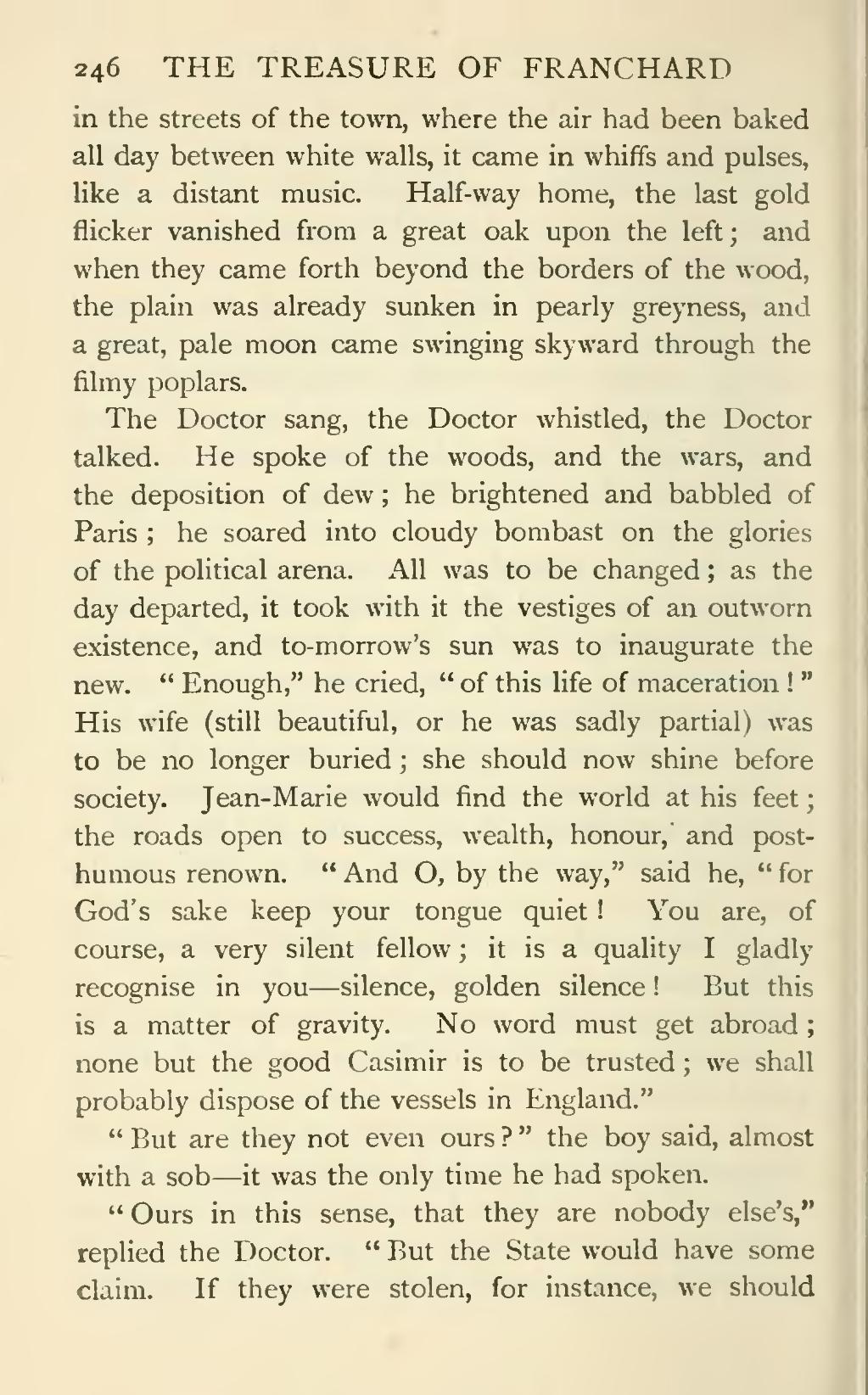in the streets of the town, where the air had been baked all day between white walls, it came in whiffs and pulses, like a distant music. Half-way home, the last gold flicker vanished from a great oak upon the left; and when they came forth beyond the borders of the wood, the plain was already sunken in pearly greyness, and a great, pale moon came swinging skyward through the filmy poplars.
The Doctor sang, the Doctor whistled, the Doctor talked. He spoke of the woods, and the wars, and the deposition of dew; he brightened and babbled of Paris; he soared into cloudy bombast on the glories of the political arena. All was to be changed; as the day departed, it took with it the vestiges of an outworn existence, and to-morrow's sun was to inaugurate the new. "Enough," he cried, "of this life of maceration!" His wife (still beautiful, or he was sadly partial) was to be no longer buried; she should now shine before society. Jean-Marie would find the world at his feet; the roads open to success, wealth, honour, and posthumous renown. "And O, by the way," said he, "for God's sake keep your tongue quiet! You are, of course, a very silent fellow; it is a quality I gladly recognise in you—silence, golden silence! But this is a matter of gravity. No word must get abroad; none but the good Casimir is to be trusted; we shall probably dispose of the vessels in England."
"But are they not even ours?" the boy said, almost with a sob—it was the only time he had spoken.
"Ours in this sense, that they are nobody else's," replied the Doctor. "But the State would have some claim. If they were stolen, for instance, we should
